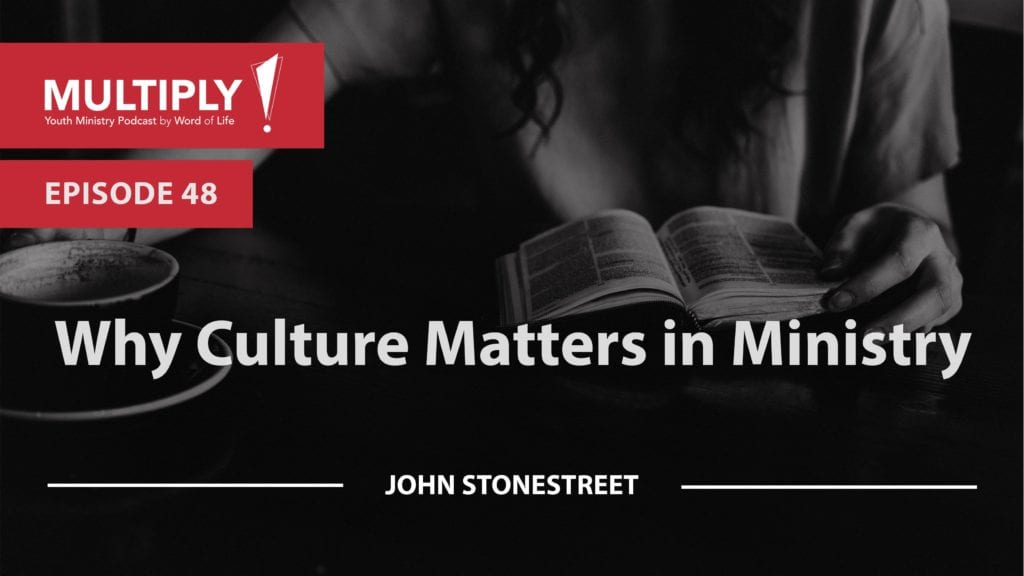Why does culture matter to us as believers?
Culture matters to everyone because no one has ever lived outside of a cultural setting. It is the environment in which ministers invest and lead in the next generation.
Culture brings challenges. In our current culture, the topics that used to be unthinkable quickly transitioned to the unquestionable overnight.
Where are we at today as a culture?
It is difficult for those inside a culture to separate themselves enough to accurately describe it. Example: If you want to know about the water, don’t ask the fish. They don’t even know they are wet.
In studying culture, there are two elements to consider.
- Cultural Waves: Noticeable changes. Ex. War on Drugs, opioid epidemic, LGBT movement, etc.
- Undercurrents: The stuff you don’t realize is in play, significant shifts that are under-noticed, or under-reported.
Generational gaps:
The cultural differences between generations can cause tension when addressing issues, even if both are believers.
Identity after Christianity – Sexuality for previous generations was a moral conversation. Sexuality for today’s generation is now an identity conversation. Our culture places sexuality as the single most significant part of your identity. This shift is at its root a change in the understanding of what it means to be human. That is why when confronted with the truth, many students no longer respond with, “You’re wrong,” but with “You’re being mean.” Being aware of this shift, church leaders need to address sexuality in terms of identity. The Bible itself approaches sexuality as an identity issue, addressing it in Genesis within the premise of man being created in the image of God. Be aware that the concept of us being created by anyone or anything, other than our own will, has also been completely dropped from the conversation in our culture.
Information Age – It has changed how we know and think, as dramatically and holistically as the industrial reformation. Newer generations may confuse access to information with wisdom. In ministry, older generations may value life-on-life experience while newer generations may value technological integration. To avoid the danger of shallowness in entertainment focused ministry, focus the countercultural structure of relational discipleship.
Antidote Worldview and Discernment Struggles with Strategies:
Strategies should not just be foundational theory, but precise, practical and procedural ways of addressing the issues. Example issue: Pornography
The Issue’s Impact: It is hard to overestimate pornography’s impact on our culture. Pornography makes sexuality inherently selfish. The souls of students have been cultivated sexually to have pleasure whenever they want and on their own terms. This extends adolescence, hurts marriages and spikes harassment and abuse. The economics of sex, supply and demand, leaves women high and dry of getting what they deserve out of a relationship. Men are no longer asked to provide security, care and respect for the women, and the women are expected to act like men sexually. Pornography literally changes our understanding of the dignity of the other person. It is absolutely devastating.
Help students navigate the area of pornography:
Start with the theology of sex. We can’t assume what sex is. Ask, what does it do? What is it for? Understanding its purpose is important for understanding the morality of it. Deal with it up front, and in the context of who God intended us to be sexually. Many students have never heard what sex is for. Don’t let the conversation stay awkward. If it stays awkward, it can stay hidden. Accountability is key with students. There should be no unfettered and unaccountable access or privacy with technology.
The Importance of God’s Word in a Young Person’s Life:
Discipline yourself to see culture from the perspective of scripture. The only way to survive chaotic cultural moments is to remember what Christ says to be true. He is working for good and has chosen for your kids to live in this moment. Success is not only for our kids to survive the culture but to impact it. For them to be able to think clearly, rise above it and enter culture with the hope and restoration the gospel provides.
Essential tool kit – 1. Know that the Bible is true. Our culture assumes the Bible to be a religious book for private consideration. 2. Read the Bible as Authoritative. It is not just full of moral nuggets and inspiration. The Bible provides an overarching framework for reality itself. Show students that there is something bigger than this culture that can help them make sense of it.
Closing Thoughts:
Deal with issues truthfully and hopefully. Christ is risen from the dead. The end of the story is not in doubt. Hope is a command for anyone who knows that Christ is risen from the dead, and hope is bigger than any chaos of the moment.
Further Reference:
“A Practical Guide to Culture” by John Stonestreet and Brett Kunkle (sold anywhere you can buy books)
Breakpoint.org – podcast gives a daily, steady stream of cultural issues from a Christian Worldview
Colsoncenter.org – Colson Center for Christian Worldview

